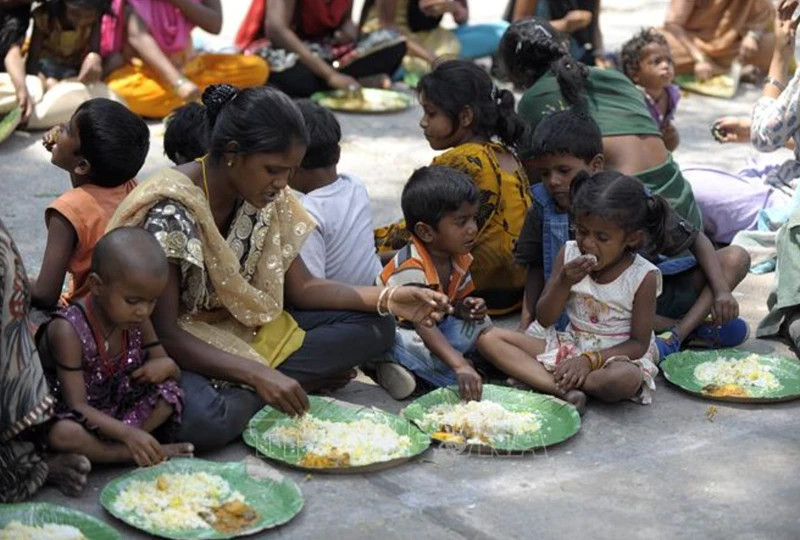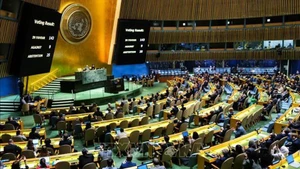A joint report by the Food and Agriculture Organization of the United Nations (FAO) and the Intergovernmental Authority on Development (IGAD) in Eastern Africa shows that, of the 58 million people facing food insecurity, 30.5 million people are from six of the eight IGAD member countries, including Djibouti, Kenya, Somalia, South Sudan, Sudan and Uganda, while the rest come from Burundi, Central African Republic, Democratic Republic of the Congo and Tanzania.
According to FAO and IGAD, the majority of food-insecure people are concentrated in the Democratic Republic of Congo, with 23.4 million people, followed by Sudan, with 17.7 million people. These two organisations emphasised that the level of food insecurity, after heavy rains and floods caused by the El Nino climate phenomenon in the Horn of Africa, is becoming serious.
To solve this urgent problem, organisations are mobilising all international resources. In late February, the United Nations announced that it allocated 17 million USD to help alleviate increasingly serious poverty caused by drought in northern Ethiopia. The United Nations Office for the Coordination of Humanitarian Affairs (OCHA) stated that the above amount was taken from the Central Emergency Response Fund (CERF), reflecting deep concerns about the impact of drought caused by the El Nino phenomenon, which is affecting large areas of Ethiopia including Afar, Amhara and Tigray.
According to OCHA, food insecurity in this Horn of Africa country will increase in the coming months due to the severity of the next drought. It is forecast that more than 10 million people across Ethiopia will need food assistance from July to September during the dry season.
OCHA was pleased to announce that thanks to donors’ contributions to the Ethiopian Government, about 6.6 million people have received timely food and cash assistance. However, OCHA emphasised that more resources are needed to fully meet humanitarian needs in Ethiopia. To maintain and expand humanitarian operations across the country, the Ethiopian Government calls for support of 3.24 billion USD to meet the demand of 15.5 million people in need.
Meanwhile, in Latin America and the Caribbean, Haiti is also being hit by food insecurity. Faced with this urgent situation, the United Nations called on countries to contribute 673.8 million USD to support Haiti. The largest multilateral organisation in the world emphasised that about 45% of Haiti’s population is encountering food insecurity, including 250,000 children who are seriously malnourished.
This situation turns the Caribbean nation into one of the countries suffering the worst food crisis in the world. The deteriorating security situation, with basic services on the brink of collapse, and the impact of prolonged drought and natural disasters have left 5.5 million Haitians at high risk of vulnerability this year.
The United Nations estimates it needs to mobilise 673.8 million USD to support 3.6 million Haitians, an ambitious goal given international humanitarian campaigns are often underfunded. Meanwhile, the outbreak of violence in Haiti makes it even more difficult for people to access basic services, such as health and education, as schools reduce operations or are forced to close. Nearly 600,000 children are living in areas controlled by criminal gangs. Approximately half of the population does not have access to clean water, causing concern in a country that has been hit by cholera in recent years.
The World Food Program (WFP) said that the new wave of violence that broke out in early February forced nearly 10,000 Haitians to leave their homes and made WEF unable to reach out to support about 370,000 people living in danger and destitution. The abovementioned numbers show a serious situation casting a shadow over the lives of the people of the Caribbean nation, who are in dire need of support from the international community.
















